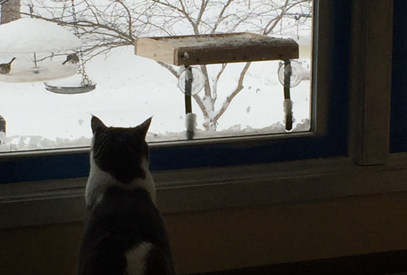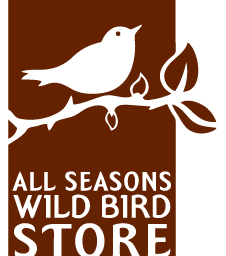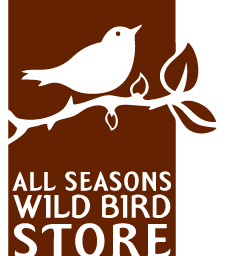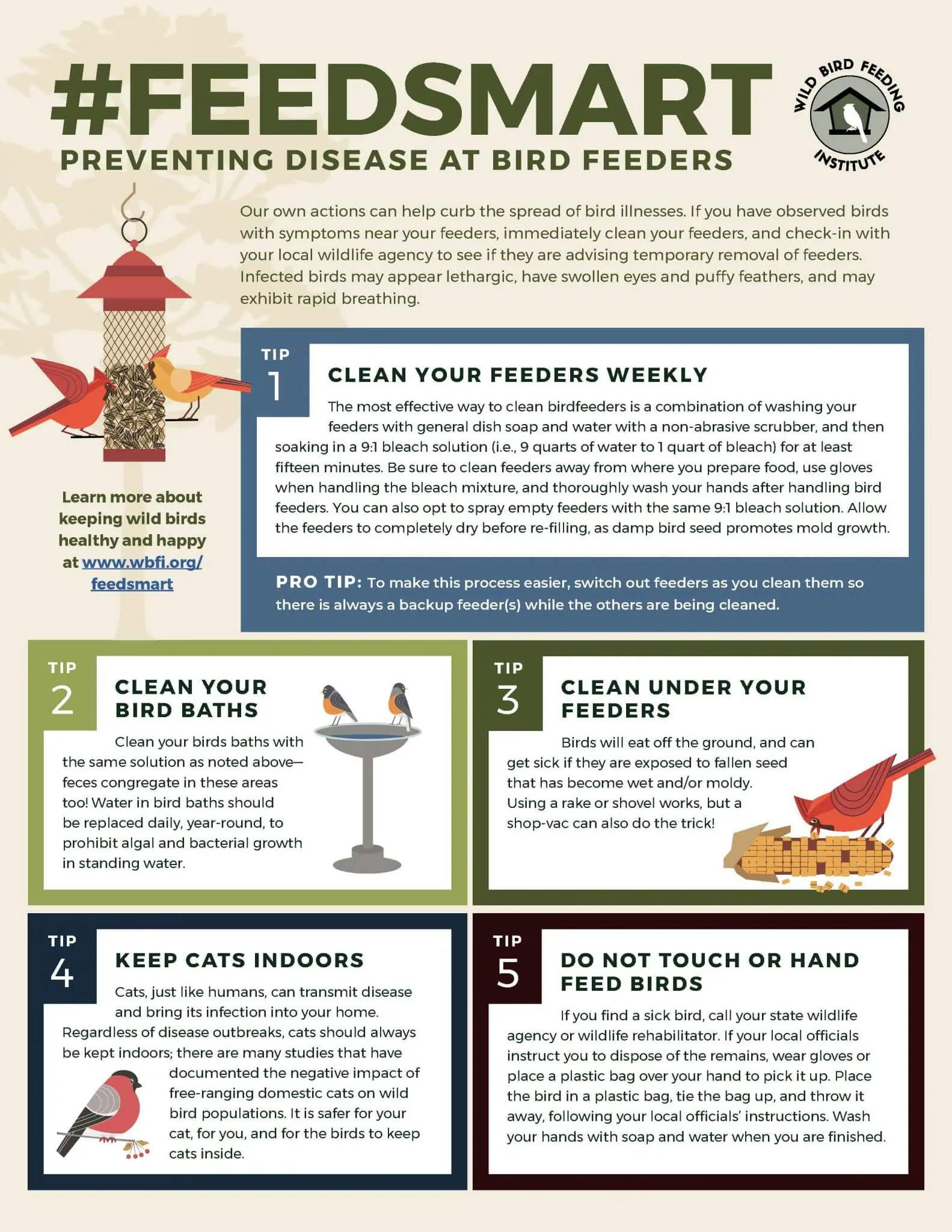Your birds are placing their health in your hands when they visit your yard. Consider assigning yourself the role of “Chief Health Inspector” for the backyard bird dining services that you provide. Here are some basic measures to adopt to keep your backyard birds healthy. Keep in mind: prevention is the best medicine!
1. Clean your feeders at least once a week to prevent the growth of bacteria and minimize the spread of diseases and parasites. Use a solution of 9:1 parts water to bleach, rinse well, then let the feeder dry completely before refilling.
- DO NOT clean feeders where you prep your own food. We recommend having a dedicated tub for bleach and one for rinsing that you can use in your garage or backyard.
- Use gloves when handling the bleach mixture and wash your hands with soap and water thoroughly following feeder cleaning.
- Cleaning supplies like brushes should be specific to bird feeders and birdbaths.
You can bring your feeders in to any All Seasons Wild Bird Store location for cleaning. If you do so, consider rotating between two feeders so you can continuously feed your birds.
TIP: Plastic and metal feeders tend to be easier to clean. Invest in quality feeders that have easy-to-clean features.
2. Change birdbath water daily. Scrub birdbaths with a brush between fillings and clean birdbaths using the same 9:1 solution of water: bleach weekly.
3. Clean the area beneath your feeders. During the summer, don a mask and gloves for protection and rake the area to remove accumulated seeds beneath the feeder. During the winter, shovel fresh snow over the area.
4. Change nectar every 3-5 days, cleaning the feeder between fillings. Change nectar more frequently (every other day) when temperatures are especially hot—high temperatures encourage the growth of fungus and bacteria. Don’t forget to wash your hands.
House Finch Eye Disease (Mycoplasmal conjunctivitis)
If you observe birds at your feeders that have swollen or crusty eyes, appear unusually lethargic, or have labored breathing, immediately perform a thorough cleaning of feeders and birdbaths and check in with your local wildlife agency (Link) to see if they are advising temporary removal of feeders.
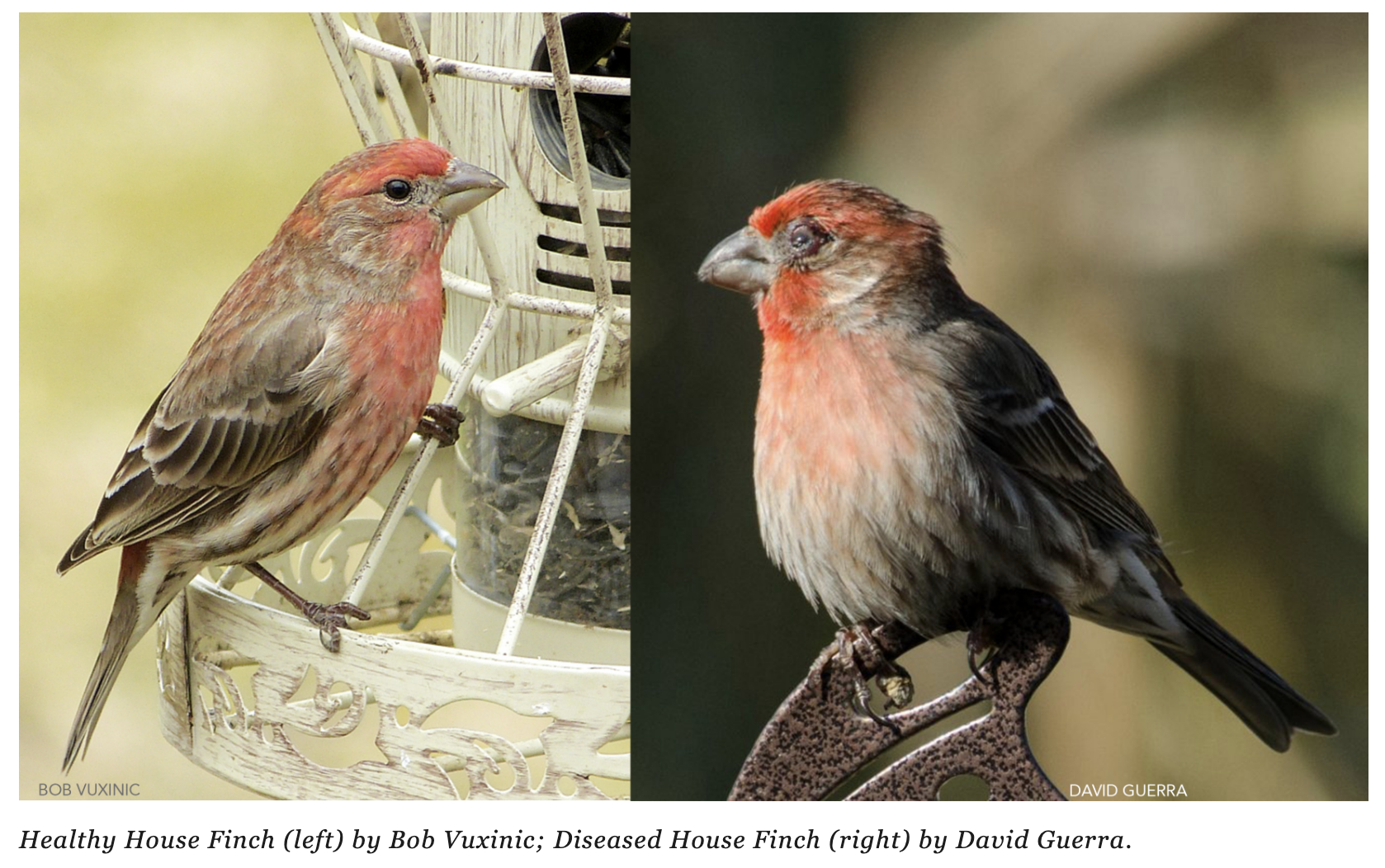
Avian Flu (HPAI)
1. Keep an eye on the APHIS’ wild bird surveillance program maps (https://www.aphis.usda.gov/aphis/ourfocus/animalhealth/animal-disease-information/avian/avian-influenza/hpai-2022/2022-hpai-wild-birds) to monitor the rate of Avian Influenza in your area
2. If Avian Flu is in your area AND you have regular visits from birds most likely impacted by HPAI (raptors, waterfowl, shorebirds, or game birds), consider temporary removal of feeders until the number of HPAI-positive cases in your area recedes.
A final note about cats.
Just as restaurants have strict rules about animals near food to prevent potential disease transmission and certainly don’t invite predators in to stalk their patrons, as the Chief Health Inspector for your backyard birds, you should be sure to keep cats indoors for the health of your backyard birds. You can keep your cats entertained by installing some window feeders to bring the birds up close for some harmless indoor viewing!
